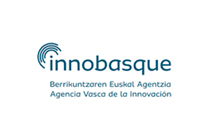 Aurreko ekintzak: Abhilasha Kumar. Exploring form-meaning interactions in novel word learning and memory search
Aurreko ekintzak: Abhilasha Kumar. Exploring form-meaning interactions in novel word learning and memory search
Abhilasha Kumar. Exploring form-meaning interactions in novel word learning and memory search
What: Exploring form-meaning interactions in novel word learning and memory search
Where: BCBL Auditorium and Auditorium zoom room (If you would like to attend to this meeting reserve at info@bcbl.eu)
Who: Abhilasha Kumar, PhD, Assistant Professor, Bowdoin College, Brunswick, Maine, US
When: Thursday, Sep 4th at 12:00 PM noon.
Traditional accounts of language have emphasized that the relationship between wordform and meaning is arbitrary. However, a growing body of work suggests that wordform similarity is positively correlated with semantic similarity, and these form-meaning correspondences can benefit word learning and categorization. Even so, the interactions between wordform and meaning in word learning and downstream semantic retrieval tasks remain understudied. In this talk, I will discuss two lines of research that examine how form-meaning correspondences influence novel word acquisition and how these lexical sources are utilized in the semantic fluency task, using a combination of experimental and computational modeling work. In the first, participants learned novel words embedded in sentences emphasizing direct or indirect associations with known words, with or without wordform overlap. Wordform overlap facilitated the semantic integration of novel words for both types of associations. The second line of research used the semantic fluency task. Higher fluency was observed when produced items shared both semantic and phonological features, though lexical structure and retrieval processes differed across category types. Finally, fluency data from individuals with cochlear implants indicated greater global activation of phonological information in the lexicon, but reduced flexibility in utilizing this information locally to facilitate semantic retrieval compared to peers with normal hearing. Taken together, these findings shed light on how form-to-meaning mappings and early linguistic experiences not only shape novel word learning and lexical organization, but also how these mappings are actively leveraged in semantic tasks and contribute to efficient lexical processing.








